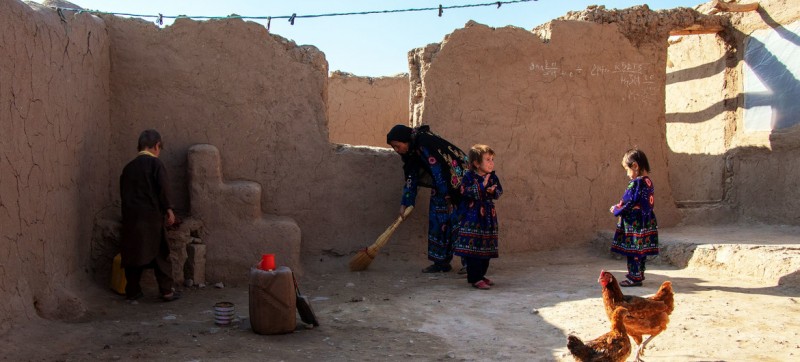Contents
Conflicts and the collapse of Herat city by the Taliban drove this family to Shahrak Sabz, Herat, a western province of Afghanistan. Despite a crisis of trust both within the country and abroad, three months after the Taliban took control of Afghanistan, it is taking halting steps to pursue international legitimacy, a senior UN official in Kabul told the Security Council on Wednesday. Deborah Lyons, UN Special Representative and Head of the UN Assistance Mission in Afghanistan (UNAMA), said that despite an improvement in the security situation, Afghans feel abandoned by the international community and anxious about their new leadership.
Snow and ice will soon block roads in hard-to-reach areas across Afghanistan, leaving thousands without access to fresh supplies and services for months.
IOM teams are reaching remote communities to assist all those in need with blankets, warm clothing, shelter items and cash. pic.twitter.com/27OOOtpg7Y
— IOM Afghanistan (@IOMAfghanistan) November 17, 2021
“Ultimately, the Taliban must decide on whether to govern according to the needs and rights of the diverse Afghan population, or whether to rule on the basis of a narrow ideology and even narrower ethnic base”, she stated.
Disengagement a ‘historic mistake’
Emphasizing that the Taliban are genuinely trying to present themselves as a Government, the Special Representative said that they are constrained by a lack of resources and a political ideology that clashes with contemporary international norms of governance.
Moreover, the Taliban has neither earned the trust of most Afghans nor convinced the nationals of their capacity to govern.
Against that tenuous backdrop, Ms. Lyons stressed that the international community must remain engaged with Taliban leaders in order to shape a more positive future trajectory.
“To abandon the Afghan people now would be a historic mistake – a mistake that has been made before with tragic consequences”, she warned.
Trust deficits
Outlining her team’s early interactions with the de facto Taliban administration, the Special Representative said engagements have been generally useful and constructive.
The de facto authorities have indicated that they want a UN presence and value its assistance.
They continue to seek international recognition as well as ways to overcome the trust deficit that they recognize exists between them and the international community.
The Taliban continue to provide security to UN staff and allow broad humanitarian access, including for women humanitarian workers, allowing access to parts of the country that had not been visited for 15 years.
“Be assured that we have not shied away from raising difficult issues with the Taliban, particularly on women’s rights, girls’ education and on reports … of harassment and extra-judicial killings”, underscored the UN official.

Deborah Lyons, Special Representative of the Secretary-General and Head of the UN Assistance Mission in Afghanistan, briefs the Security Council meeting on the situation in the country.
Women and girls
Ms. Lyons said that in general, the Taliban have recognized the international community’s concerns – often acknowledging mistakes and trying to address them.
However, they also make clear that for now there are limits to the concessions they are willing to make on certain issues, including those relating to the rights and freedoms of women.
While the de facto authorities had initially assured the global community that they would protect women’s rights within Islamic law – including the right to education – there has nevertheless been a general curtailment of their fundamental rights and freedoms.
From a woman’s right to work, to their absence from major decision-making fora and senior echelons of the civil service, their limitations have become obvious.
And the Taliban authorities have indicated that they are working on a nation-wide policy to govern girls’ right to education.
The best way to promote stability and future international support is for the Taliban to avoid the isolation that characterized their previous experience in power – Special Representative
Building constructive relations
Ms. Lyons told Council members that Afghans generally feel apprehensive over Taliban intentions.
Among their top concerns are the country’s paralyzed economy, the inability to withdraw money and fears of not being able to feed themselves during the winter.
The UN has also received credible reports of house searches and extra-judicial killings of former Government security personnel and officials.
Meanwhile to date, the Taliban has proven its inability to stem the expansion of Islamic State in Iraq and the Levant – Khorasan Province (ISIL-KP), where terrorist attacks have increased from 60 in 2020 to 334 so far this year.
In that context, Ms. Lyons called for the gradual establishment of constructive relations between Afghanistan and the world at large.
“The best way to promote stability and future international support is for the Taliban to avoid the isolation that characterized their previous experience in power”, stressed the Special Representative.



